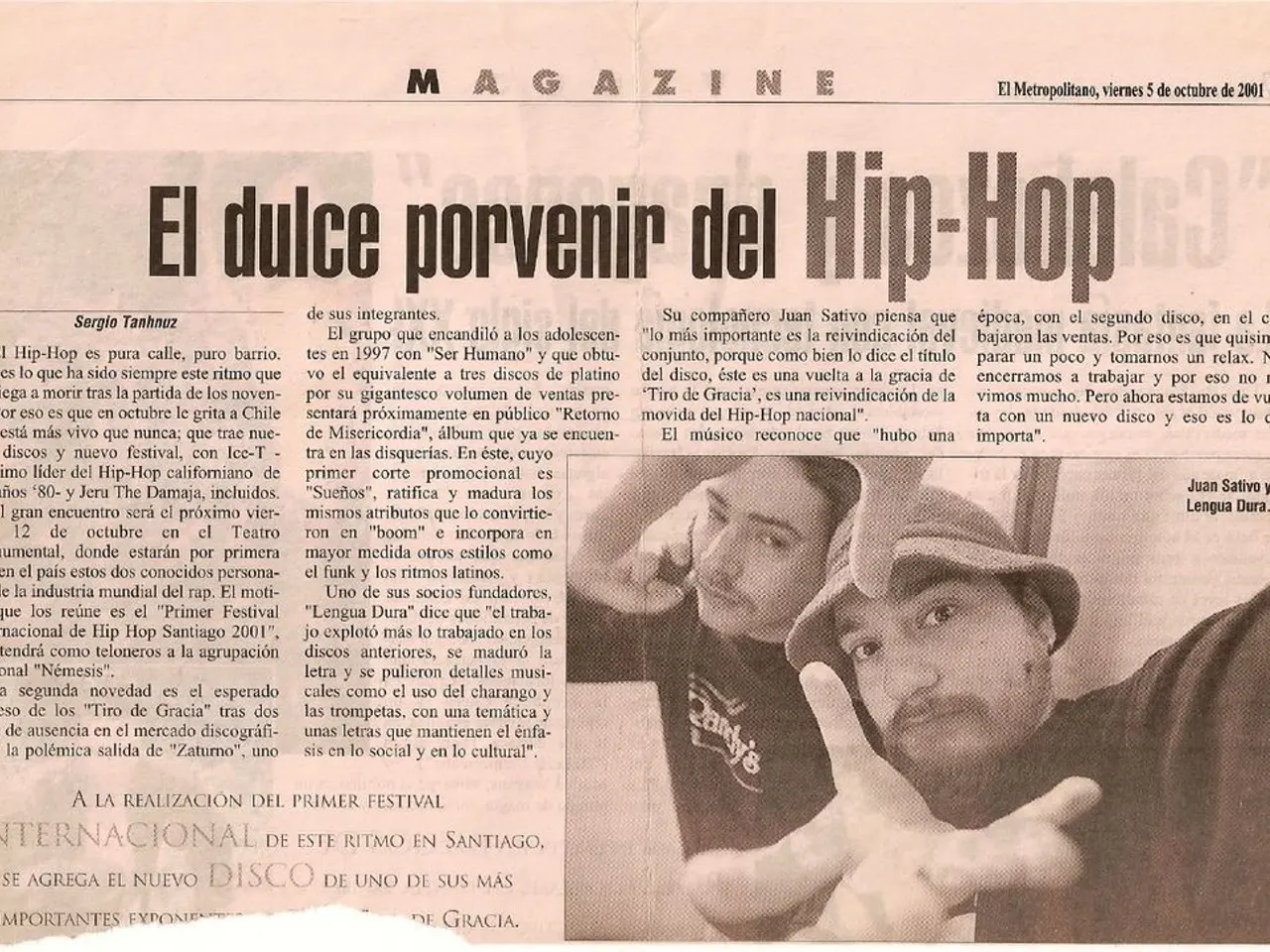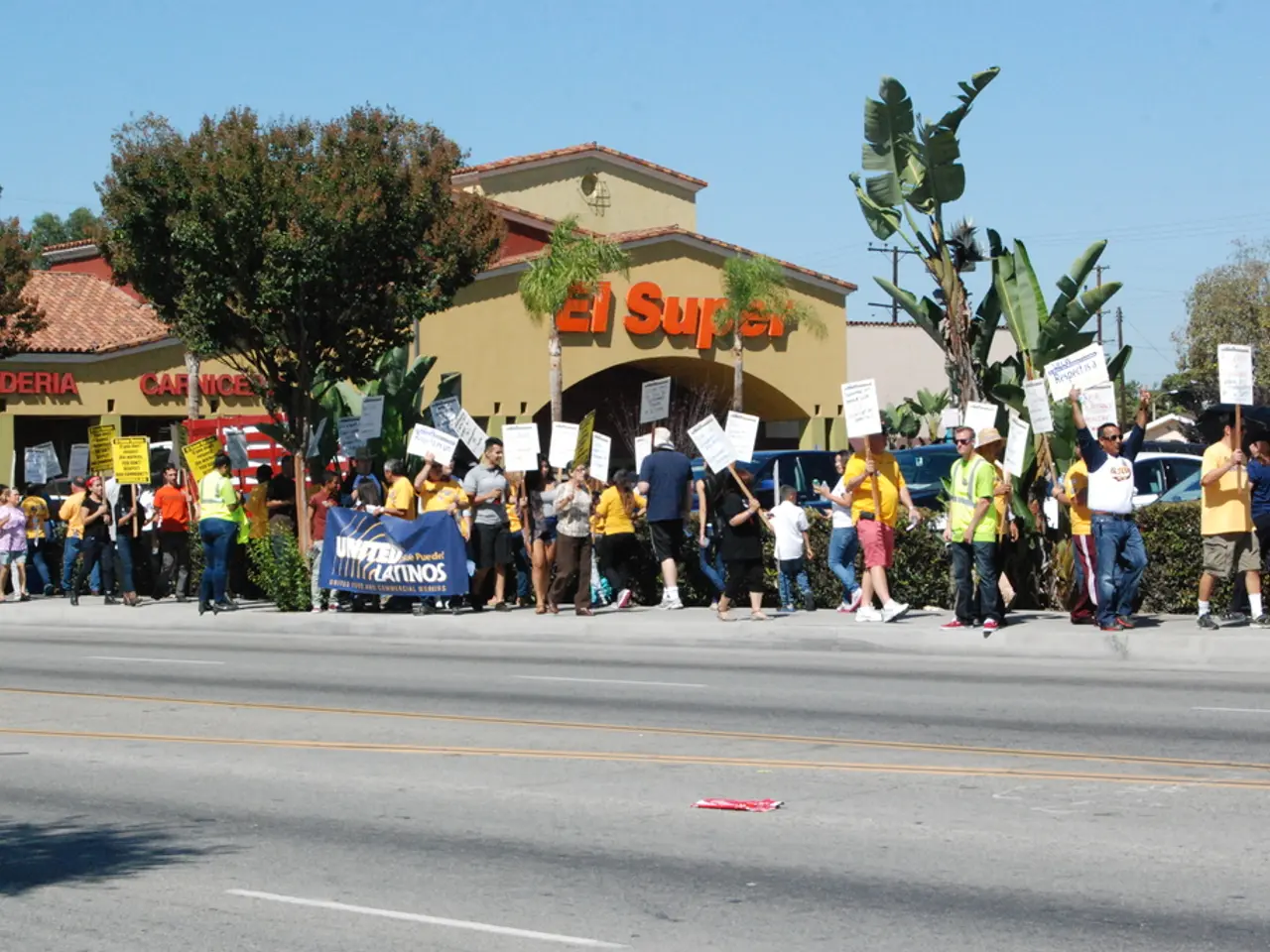United States trade with Mexico continues without tariffs following Mexico's acquisition of a 90-day tariff reprieve from Trump's latest threat
The United States and Mexico have agreed to extend a pause on proposed tariffs for 90 days, as both countries continue negotiations on a long-term trade agreement. This decision was made following a recent call between President Donald Trump and Mexican President Claudia Sheinbaum.
During this period, imports from Mexico that comply with the United States-Mexico-Canada Agreement (USMCA) are exempt from a 30% tariff. However, non-USMCA-compliant goods from Mexico remain subject to a 25% tariff. Sectoral tariffs on imports such as cars, steel, aluminum, and copper from Mexico will continue to be applied regardless of USMCA compliance.
The extension provides a 90-day period for negotiations to seek a long-term agreement. President Trump's letter indicated that the 30% tariff would be separate from existing sectoral tariffs, thus not replacing or negating the pre-existing duties on certain goods like vehicles and metals.
The USMCA, which replaced NAFTA, is designed to simplify and reduce barriers for goods moving between the U.S., Mexico, and Canada. Compliance with USMCA standards tends to reduce the risk of tariffs and provides a framework for dispute resolution.
Mexico has agreed to immediately terminate its Non Tariff Trade Barriers. President Sheinbaum expressed confidence in recent days that her government would reach an agreement with the Trump administration to stave off the 30% tariff. She also proposed a "general" or "global" agreement between Mexico and the United States covering trade, security, and migration.
The call between Sheinbaum and Trump lasted around 40 minutes and was attended by Foreign Minister Marcelo Ebrard, Finance Minister Santiago de la Fuente, and Speaker of the Chamber of Deputies Mario Delgado Velasco. Ebrard has made frequent trips to Washington since Trump's second term as president began on Jan. 20.
Trump agreed to maintain the same deal as before, including a 25% Fentanyl Tariff, 25% Tariff on Cars, and 50% Tariff on Steel, Aluminum, and Copper. U.S. content in vehicles made in Mexico is exempt from the United States' 25% auto tariff, lowering the effective duty on Mexican cars to 15% on average.
Sheinbaum's government maintained a "cool head" during the negotiations, which were led by Ebrard. The U.S. president and Mexico will be talking over the next 90 days with the goal of signing a Trade Deal. Investing in Mexico continues to be the best option, according to Sheinbaum, due to Mexico's "very good situation in the face of this new international order."
Sources: 1. The Washington Post 2. Reuters 3. CNN Business
- The extension of the tariff pause between the United States and Mexico provides a 90-day window for political negotiations, with the aim of reaching a long-term trade agreement.
- In light of the recent call between President Trump and Mexican President Sheinbaum, Mexico has agreed to terminate its Non-Tariff Trade Barriers and is advocating for a "general" or "global" agreement between the two countries, which would cover trade, security, and migration.
- Despite the 90-day tariff pause, existing sectoral tariffs, such as the 25% tariff on cars, the 25% Fentanyl tariff, and the 50% tariff on steel, aluminum, and copper, will remain in place during negotiations.






